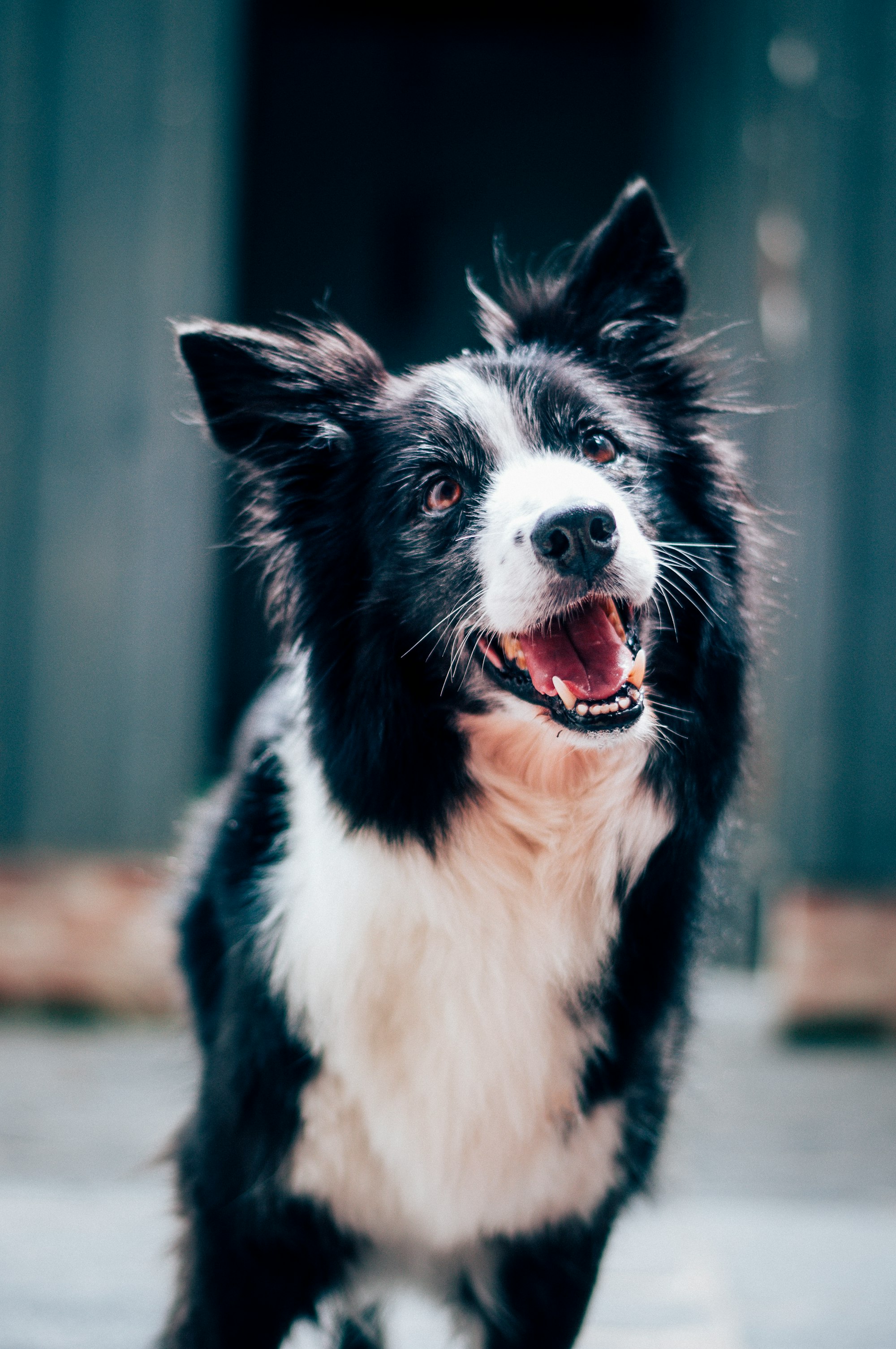Kennel cough, also known as canine infectious tracheobronchitis, is a common respiratory disease among dogs. This article explores the causes, symptoms, diagnosis, treatment, and prevention of kennel cough, providing essential information for dog owners and enthusiasts.

What is Kennel Cough?
Kennel cough is a highly contagious respiratory disease that affects dogs of all ages. It's characterized by a persistent, dry, and often honking cough. While it's rarely a life-threatening condition, understanding kennel cough is crucial for pet owners, especially those who frequently expose their dogs to other animals in communal settings.
Causes of Kennel Cough
Kennel cough, scientifically referred to as canine infectious tracheobronchitis, is a multifactorial ailment primarily caused by the synergistic action of various pathogens. The primary agents responsible for instigating this disease include:
a. Bordetella bronchiseptica: This bacterium is the predominant causative agent of kennel cough. It colonizes the respiratory tract, particularly the trachea and bronchi, leading to inflammation and irritation.
b. Parainfluenza virus: Parainfluenza virus type 2 is a common viral contributor to kennel cough. It weakens the respiratory epithelium and renders the affected dog more susceptible to bacterial infections.
c. Canine adenovirus: Canine adenovirus type 2 (CAV-2) is another viral factor that plays a role in kennel cough. It infects the respiratory tract, exacerbating clinical symptoms.
d. Other pathogens: In addition to the primary agents mentioned above, kennel cough can also be influenced by secondary pathogens, such as Mycoplasma spp. and canine herpesvirus. These organisms may exacerbate the severity and duration of the disease.
Symptoms of Kennel Cough:
The clinical presentation of kennel cough is characterized by a distinctive set of symptoms, which can vary in severity but typically include the following:
a. Persistent, Dry Cough: Kennel cough is most notably associated with a harsh, dry, and hacking cough. This cough may be exacerbated by excitement, physical activity, or pressure on the trachea.
b. Nasal Discharge: Dogs affected by kennel cough may exhibit mild to moderate nasal discharge, which is typically clear and watery in nature.
c. Sneezing and Reverse Sneezing: Some affected dogs may experience episodes of sneezing or reverse sneezing, characterized by rapid inhalation and snorting sounds.
d. Mild Fever: A slight increase in body temperature is often observed, though it generally remains within a subclinical range.
e. Lethargy: Infected dogs may display reduced energy levels and appear less active than usual.
f. Appetite Loss: Kennel cough can lead to a temporary decrease in appetite, resulting in reduced dog food intake.
g. Conjunctivitis: In some cases, mild inflammation of the eyes (conjunctivitis) may occur as a secondary symptom.
h. Severe Cases: In severe instances, particularly in immunocompromised or young puppies, kennel cough can progress to pneumonia, which manifests as more pronounced respiratory distress, fever, and increased severity of coughing.
It is crucial to note that kennel cough is a self-limiting condition in most cases, with symptoms typically resolving within a few weeks. However, prompt veterinary attention is advisable, particularly in cases where severe symptoms or complications arise, as treatment options may include antibiotics, cough suppressants, and supportive care to alleviate discomfort and minimize the risk of secondary infections. Timely vaccination and effective hygiene measures are pivotal in preventing the spread of this contagious respiratory ailment among canine populations.
Diagnosis and Veterinary Assessment
Accurate diagnosis of kennel cough is crucial for effective management and containment of this highly contagious canine respiratory disease. Veterinary assessment plays a pivotal role in confirming the presence of the condition and differentiating it from other respiratory ailments. The following section elucidates the key diagnostic methods and veterinary evaluations employed in the identification of kennel cough:

1. Clinical Examination:
Upon presentation of a dog with suspected kennel cough, veterinarians conduct a thorough clinical examination. This involves a detailed assessment of the dog's medical history, including recent exposure to potential sources of infection, such as kennels or other dogs exhibiting similar symptoms. The physical examination focuses on identifying characteristic signs, including the persistent dry cough, nasal discharge, and overall respiratory distress.
2. Diagnostic Imaging:
In some cases, diagnostic imaging techniques like radiography (X-rays) or bronchoscopy may be employed to evaluate the extent of tracheal and bronchial involvement. These imaging modalities can assist in ruling out other potential causes of respiratory distress and confirming the presence of tracheobronchitis.
3. Laboratory Testing:
Laboratory tests are instrumental in confirming the specific causative agents responsible for kennel cough. These may include bacterial culture and sensitivity testing to isolate Bordetella bronchiseptica, as well as molecular diagnostic assays like polymerase chain reaction (PCR) to detect viral pathogens such as canine parainfluenza virus and canine adenovirus.
Treatment Options:
The management of kennel cough entails a multifaceted approach aimed at alleviating clinical signs, controlling the spread of the disease, and preventing secondary complications. The selection of treatment options depends on the severity of the condition and the underlying pathogens involved. This section delineates the principal therapeutic strategies available for addressing kennel cough:
1. Symptomatic Treatment:
Most cases of kennel cough are self-limiting, and symptomatic therapy is often sufficient. This includes rest, isolation from other dogs to prevent further transmission, and the administration of cough suppressants to alleviate the dry, persistent cough. Humidification of the dog's environment can also provide relief.
2. Antibiotics:
In cases where Bordetella bronchiseptica is confirmed or suspected, veterinarians may prescribe antibiotics to target the bacterial infection. Commonly used antibiotics include doxycycline or trimethoprim-sulfamethoxazole, which are effective against this bacterium.
3. Antiviral Medications:
For viral components of kennel cough, such as canine parainfluenza virus and canine adenovirus, specific antiviral medications are not routinely available. However, supportive care and addressing secondary bacterial infections remain integral components of management.
4. Vaccination:
Prevention is key to managing kennel cough. Vaccination against Bordetella bronchiseptica, canine parainfluenza virus, and canine adenovirus is recommended, especially for dogs at high risk of exposure due to frequent interactions with other dogs in kennels, dog parks, or boarding facilities.
Preventing Kennel Cough
Vaccination: Vaccination is the most effective way to prevent kennel cough. Dogs should be routinely vaccinated, especially if they are frequently in high-risk environments.
Hygiene and Sanitation: Practicing good hygiene and sanitation in shared spaces can also reduce the risk of transmission. Cleaning and disinfecting kennels and other communal areas are essential.
Avoiding Overcrowded Places: Avoiding overcrowded places, such as dog parks or boarding kennels during outbreaks, can minimize the risk of exposure to the disease.
Kennel Cough in High-Risk Environments
Boarding Kennels: Boarding kennels are known hotspots for kennel cough transmission. Ensuring your happy dog is up-to-date on vaccinations before boarding is crucial.
Dog Parks: Dog parks are another common location for kennel cough transmission. Monitoring your dog's interactions and practicing good hygiene can help prevent infection.
Shelters and Rescues: Shelters and rescue organizations often deal with dogs of unknown health histories, making vaccination and isolation protocols essential to prevent outbreaks.
Complications and Risks
Secondary Infections: In severe cases, kennel cough can lead to secondary infections, such as pneumonia. Timely treatment is essential to prevent these complications.
Pneumonia: Pneumonia is a serious complication of kennel cough. It can be life-threatening and requires immediate veterinary attention.
Chronic Kennel Cough: In some instances, kennel cough can become chronic, persisting for weeks or even months. This can be challenging to treat and may require ongoing veterinary care.
Home Care for Kennel Cough
Tips for Comforting Your Dog: Providing a comfortable and quiet environment, offering soothing treats, and using a humidifier can help ease your dog's discomfort.
Isolation Measures at Home: If your dog has kennel cough, it's essential to isolate them from other pets at home to prevent the spread of the disease.
When to Seek Immediate Veterinary Care
Kennel cough, while typically a self-limiting condition in healthy dogs, can occasionally lead to complications that necessitate prompt veterinary attention. The following circumstances warrant immediate medical care:
1. Severe Respiratory Distress: If a dog with kennel cough exhibits severe difficulty in breathing, characterized by pronounced wheezing, rapid breathing, or cyanosis (bluish discoloration of the mucous membranes), immediate veterinary intervention is crucial.
2. Prolonged Anorexia: Refusal to eat for an extended period may lead to dehydration and weakness. Dogs showing persistent anorexia should be assessed by a veterinarian to prevent further complications.
3. High Fever: While kennel cough typically does not result in high fever, the presence of an elevated body temperature (above 104°F or 40°C) may signal a more severe underlying infection that requires professional evaluation.
4. Persistent Coughing: If the cough persists or worsens beyond a week, it may indicate a secondary infection or another underlying condition that requires diagnosis and treatment.
5. Lethargy: Profound and prolonged lethargy, especially in combination with other symptoms, can indicate a more serious health issue and should be examined by a veterinarian.

Kennel Cough in Other Animals:
While kennel cough primarily affects dogs, similar respiratory conditions can occur in other animals, particularly those kept in communal or close-contact settings. In cats, feline infectious respiratory disease (FIRD) bears resemblance to kennel cough and encompasses pathogens such as feline herpesvirus and feline calicivirus. In horses, "equine cough" or "horse cough" shares some clinical features with kennel cough and can result from exposure to various infectious agents.
Cross-species transmission of pathogens between dogs and other animals is relatively rare but not entirely implausible. Therefore, it is prudent for pet owners and caretakers of other animals to adhere to good hygiene practices, including isolation and vaccination where applicable, to minimize the risk of respiratory infections in their respective species.
Conclusion
In summary, kennel cough, scientifically known as canine infectious tracheobronchitis, presents a significant challenge in the realm of canine health. Its multifaceted etiology involving bacterial and viral agents necessitates a nuanced approach to diagnosis and management. While kennel cough is typically self-limiting, the potential for complications underscores the importance of vigilant monitoring and timely veterinary intervention in severe cases.
Furthermore, preventive measures, including vaccination and hygienic practices, play a pivotal role in curbing the spread of this contagious disease, particularly in environments where dogs congregate. Education and awareness among pet owners and caretakers are crucial elements in the holistic approach to mitigating the impact of kennel cough on canine populations.
FAQs (Frequently Asked Questions) about Kennel Cough:
- Q1: What is kennel cough?
Kennel cough, scientifically termed canine infectious tracheobronchitis, is a contagious respiratory ailment affecting dogs. It manifests as a persistent, dry cough and is caused by a combination of viral and bacterial pathogens, with Bordetella bronchiseptica being a common bacterial agent.
- Q2: How is kennel cough transmitted?
Kennel cough is primarily spread through the airborne route, as infected dogs release respiratory droplets containing infectious agents when coughing or sneezing. Direct dog-to-dog contact and contact with contaminated surfaces also contribute to transmission.
- Q3: What are the typical symptoms of kennel cough?
Common clinical signs of kennel cough include a persistent, harsh, dry cough, nasal discharge, and occasionally, mild fever. In some cases, the cough may be accompanied by sneezing and lethargy.
- Q4: When should I seek veterinary care for a dog with kennel cough?
Veterinary care is warranted if the dog exhibits severe respiratory distress, prolonged anorexia, a high fever, persistent or worsening cough beyond a week, or profound lethargy. These symptoms may indicate complications or an underlying condition requiring professional evaluation.
- Q5: Is kennel cough preventable?
Kennel cough is preventable through vaccination against its primary causative agents, including Bordetella bronchiseptica, canine parainfluenza virus, and canine adenovirus. Additionally, practicing good hygiene and isolating infected dogs can help minimize the risk of transmission in shared environments.
- Q6: Can kennel cough affect other animals besides dogs?
While kennel cough primarily afflicts dogs, similar respiratory conditions can occur in other animals, such as cats (feline infectious respiratory disease) and horses (equine cough). Although cross-species transmission is rare, preventive measures are advisable in communal or close-contact settings.
- Q7: Is kennel cough zoonotic, meaning can it be transmitted to humans?
Kennel cough is primarily a canine disease and does not commonly infect humans. However, in rare cases, immunocompromised individuals may develop mild respiratory symptoms after exposure to infected dogs. Precautionary measures can minimize this risk.
- Q8: What is the prognosis for dogs with kennel cough?
In most cases, kennel cough has a favorable prognosis, and affected dogs recover within a few weeks with proper care. However, early diagnosis and appropriate treatment are crucial to prevent complications and expedite recovery.
- Q9: Is there a specific treatment for kennel cough?
Treatment of kennel cough typically involves supportive care, including rest, isolation, and cough suppressants. Antibiotics may be prescribed if a bacterial infection is suspected or confirmed. Antiviral medications are generally not available for canine respiratory viruses.
- Q10: Can dogs be vaccinated against kennel cough?
Yes, dogs can be vaccinated against kennel cough. Vaccines are available to protect against the primary causative agents, and vaccination is particularly recommended for dogs at high risk of exposure, such as those in boarding facilities or dog-show environments.

